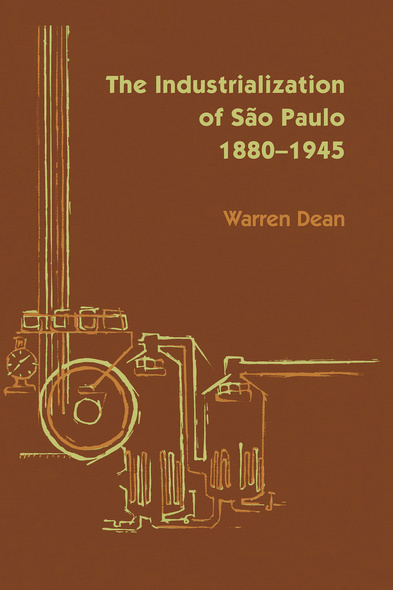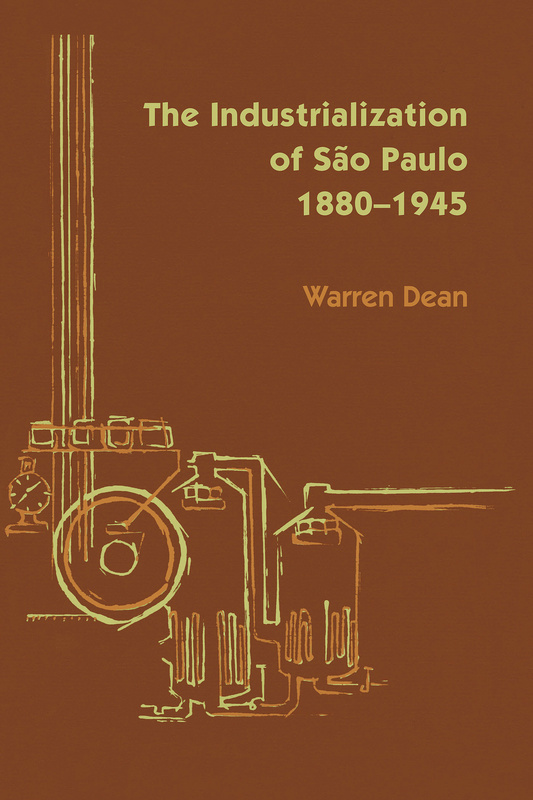São Paulo is one of the few places in the underdeveloped world where an advanced industrial system has grown out of a tropical raw-material-exporting economy. By 1960 there were 830,000 industrial workers in the state, producing $3.3 billion worth of goods. It had become Latin America’s largest industrial center.
This is a study of the early years of manufacturing in São Paulo: how it was influenced by the growth and decline of the coffee trade; where it found its markets, its credit, and its labor force; and how it confronted the competition of imports. The principal focus, however, is on the manufacturers themselves, whose perceptions of their opportunities determined how industrialization was brought about. Warren Dean discusses their social origins, their connections with other sectors of the elite, their attitudes toward workers and consumers, and their view of the potentialities of economic development. He analyzes the political activities of the manufacturers, to discover both how they promoted their interests and how they confronted the larger challenge of social and political transformation.
Paradoxically, the industrialization of São Paulo is not a “success story” of private entrepreneurship. Until after World War II manufacturing grew quite slowly, and its hallmarks were always low productivity, technical backwardness, and consumer hostility. More than half of the state’s present large-scale factory production and nearly all of its heavy industry was built by foreign capital or state enterprise, not by privately owned firms. Dean shows that this outcome is partly a consequence of the historical experience of domestic manufacture.
Throughout the book the author points out the “peculiar articulations” of the industrial system of São Paulo—the significant social and political interests that determined what kinds of development were possible. The result is an exposition of an unusual case study in twentieth-century economic development.
- Acknowledgments
- A Note on Brazilian currency
- I. The Coffee Trade Begets Industry
- Part One. Economic and Social Origins of Entrepreneurship, 1880–1914
- II. The Economic Matrix: Importing
- III. Social Origins: The Plantation Bourgeoisie
- IV. Social Origins: The Immigrant Bourgeoisie
- V. The Merger of Emerging Elites
- Part Two. Industrial Growth: Circumstance and Structure, 1914–1930
- VI. The Effects of World War
- VII. Growth and the Structure of Industry
- VIII. Conflicts among the Elite: The Beginning of Self-Consciousness
- Part Three. The Industrialists Confront Society and the State, 1920–1945
- IX. The Industrialists and “The Social Question”
- X. The Industrialists and the Liberal State
- XI. The Industrialists and the Estado Nôvo
- Conclusion
- Bibliography
- Index





